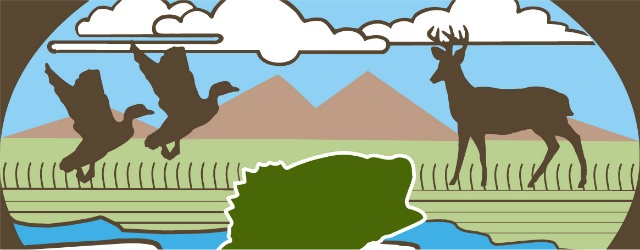Game and Fish votes for most proposals to slow deer disease
by June 24, 2016 2:52 pm 180 views

The Arkansas Game and Fish Commission voted Friday to approve recommendations meant to slow the spread of a fatal neurologic disease affecting deer and elk, though it tabled one idea that had drawn opposition from lawmakers.
Chronic wasting disease is caused by a protein known as a prion that is transmitted through deer urine, feces, saliva, blood and decaying carcasses.
Arkansas was the 24th state to discover its deer population has been affected by the disease when an infected elk was killed by a hunter Oct. 6 and then a doe appeared in Ponca 12 miles away that at first appeared healthy, but died Feb. 2 and tested positive.
At that point, the AGFC adopted a response plan that was approved in an emergency meeting Feb. 23. AGFC shot and tested 266 deer that appeared to be healthy. Sixty-two of those, or 23%, tested positive – the highest initial amount in any state that has detected the disease.
Tests are continuing statewide. Counting the original 62, a total of 93 deer have been found to be infected, all within a five-county area: Boone, Carroll, Madison, Newton and Pope counties.
“At this time, we still aren’t comfortable that we have found the outer limits of the disease,” said Brad Carner, AGFC chief of wildlife management.
Commissioners voted for recommendations Friday meant to slow the spread of the disease. Among them:
– Creating a 10-county chronic wasting disease management zone, including the five counties where deer have been found and five adjoining ones, where landowners would be issued extra deer tags and would be required to submit samples of deer killed for testing. Deer and elk killed in the zone would be required to remain in the zone, except for deboned meat and other body parts, such as hides and taxidermy products.
– Restricting deer feeding except during hunting season.
– Increasing the bag limits and removing antler restrictions in zones where chronic wasting disease is present.
– Prohibiting the use of scents containing natural deer urine. The majority of those products comes from captive deer farms in states that have tested positive for the disease.
– Prohibiting the rehabilitation of deer statewide. Carner told commissioners that most rehabilitated fawns die soon afterwards, and some could spread the disease.
Commissioners voted to table one recommendation on the advice of Jeff Crow, AGFC incoming director. That proposal would have required a non-commercial hunting enclosure permit to be created for private landowners who build eight-foot fences for the purpose of creating captive deer populations for hunting. Landowners would have been required to ensure that 20% of the perimeter was less than eight feet or did not have a fence. That change would have allowed wildlife to move freely inside and outside the enclosure.
During a legislative committee meeting Monday, legislators expressed concern that the proposal violated private property rights.
The enclosure regulation had been considered starting in January prior to the detection of chronic wasting disease, but Crow said it needed to be removed from the current discussion.
Afterwards, Carner said the agency was concerned about private citizens creating captive wildlife that belong to the entire state. Chronic wasting disease became an issue because, in other states, the movement of affected captive wildlife from one enclosure to another has spread the disease.
Carver said afterwards that the agency will continue to work with legislators on that proposal. He said it’s unlikely that anything will be considered in the 2017 legislative session.
“We want to work with them to try to develop a way to address their concerns about infringement on private property rights but also address our concerns about individuals permanently enclosing free-ranging wildlife that belong to the public,” he said.
